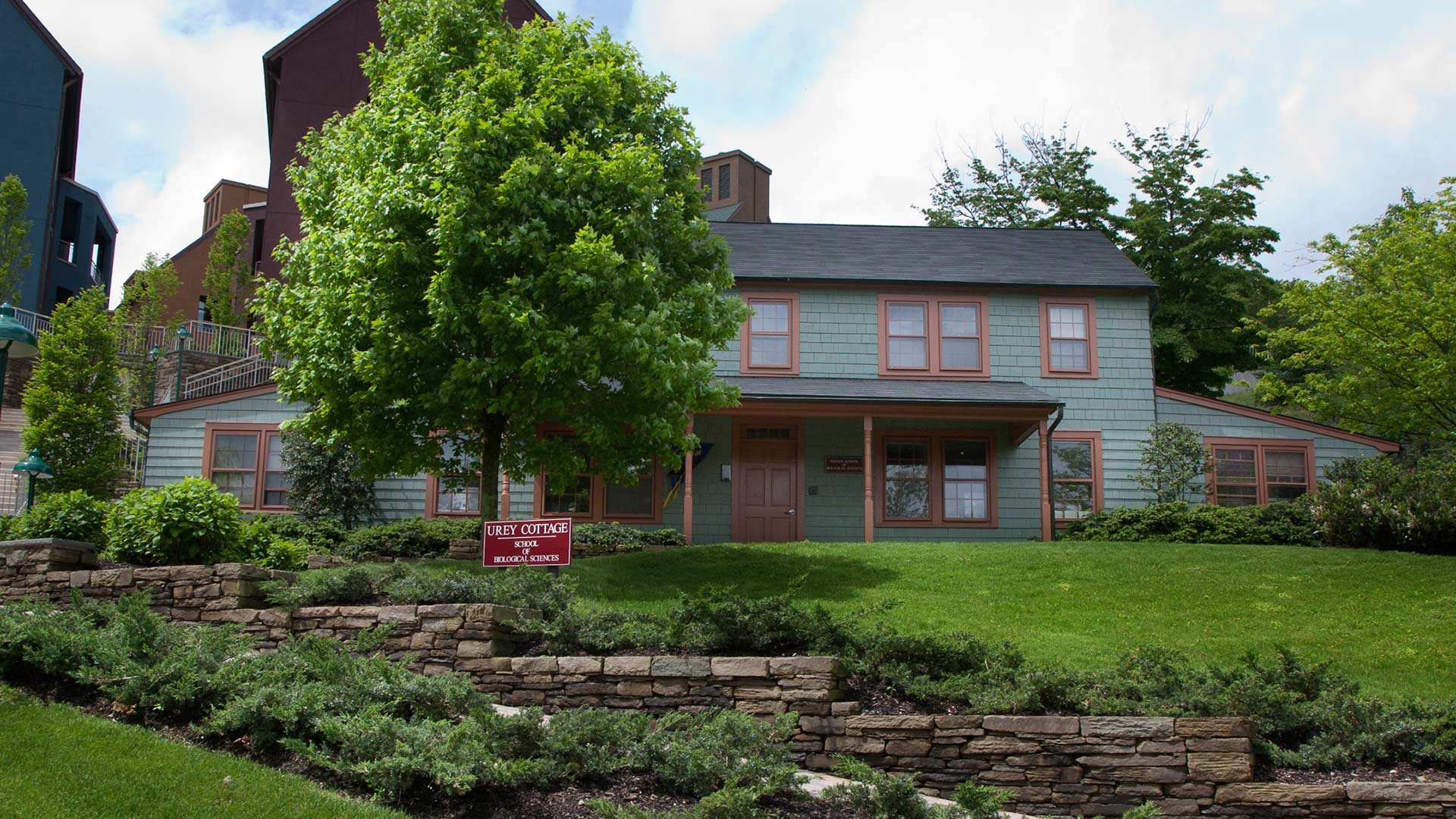The Cold Spring Harbor Laboratory (CSHL) School of Biological Sciences takes an innovative approach to advanced education. Graduates of the doctoral program pursue diverse careers. This year, seven students were awarded Ph.D. degrees. Here they recall memories and experiences that they take from the Laboratory.
Benjamin Thomas Berube
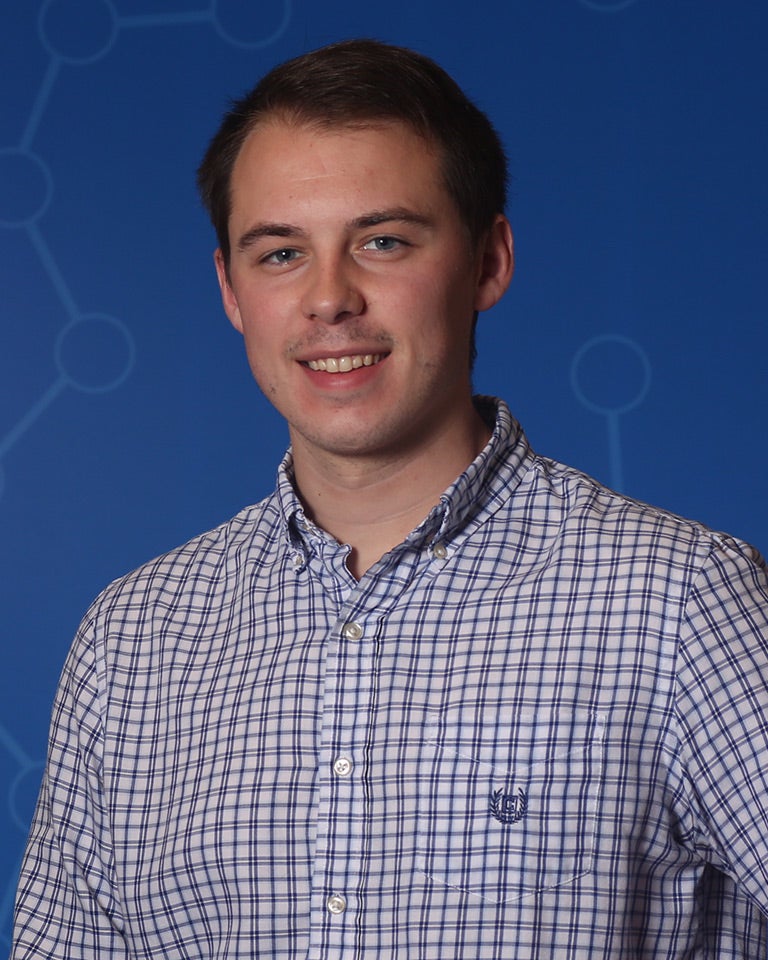
Saint Anselm College
Elisabeth Sloan Livingston Fellow
Entering Class of 2015
Thesis: “Epigenetic control of meiotic recombination and drive”
I arrived at Cold Spring Harbor Laboratory with a handful of preconceived ideas about what scientific problems I might tackle and how my time as a graduate student would progress. In retrospect, it would have been impossible for me to truly appreciate the impact my time at the lab would have upon me. The unique environment that CSHL and the School of Biological Sciences promotes has exposed me to areas of research I wouldn’t have otherwise appreciated and provided me with a number of unexpected opportunities. I have been fortunate to interact and collaborate with many brilliant people who, in my estimate, embody several of the best aspects of scientific inquiry. This has helped me cultivate my own interests, mature into a proper scientist, and develop relationships that I hold dear.
I would like to thank my mentor, Rob Martienssen, who has not only provided me with critical guidance and resources but also, and perhaps most importantly, the intellectual freedom to pursue the ideas most interesting to me. With his support, I have been able to work on challenging and entirely novel problems that have spurred my growth as a scientist immeasurably. Finally, I must also give a special thanks to my family, colleagues, and friends. I consider it a privilege to have been surrounded by so many wonderful people, and I owe much of my success to their constant support and careful advice.
Elizabeth Rose Hutton
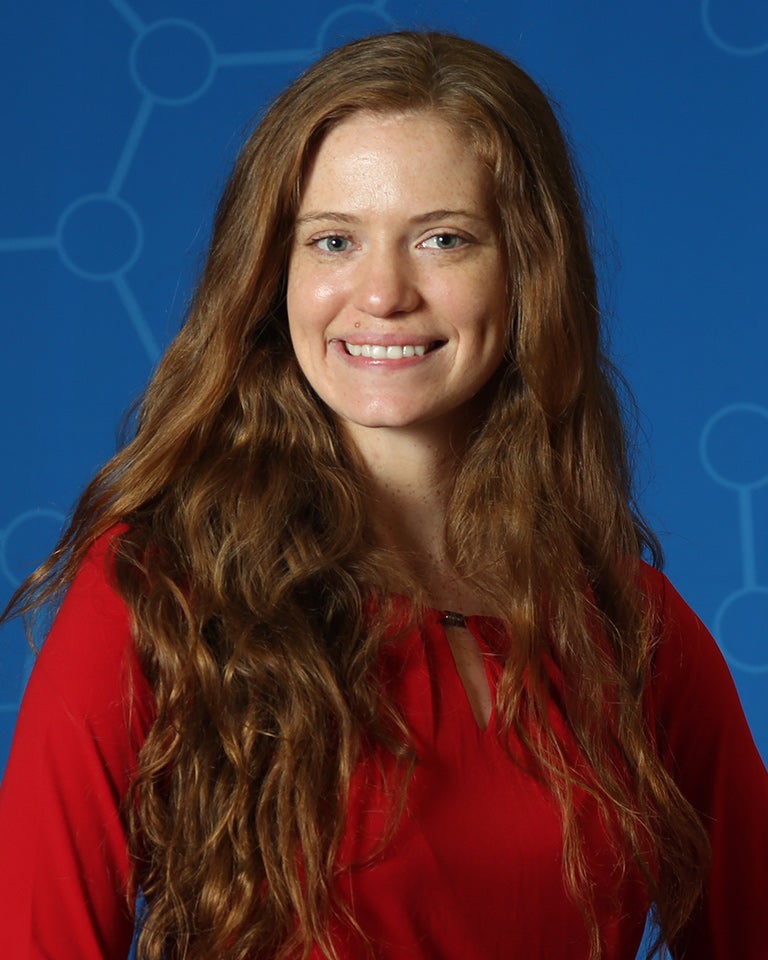
Princeton University
William R. Miller Fellow
Entering Class of 2014
Thesis: “Discovery of cancer subtype-specific essentiality in CRISPR knockout screens”
My dissertation focused on the development of statistical methods for the analysis of genomic data. While I was a graduate student in Professor Adam Siepel’s lab, his first at Cold Spring Harbor Laboratory, I also heavily collaborated with Professor Chris Vakoc’s group. After a few smaller projects, my research centered on the copious amounts of data produced by genome-wide CRISPR screens. With input from Professor Siepel and members of the Siepel laboratory, we developed a mathematically rigorous framework to identify genes essential to particular genetic backgrounds. This work is of particular interest to personalized medicine, as each cancer patient’s tumor carries different genetic mutations. Identifying the specific genes necessary for tumor growth, while sparing healthy tissue, enables the optimization of cancer treatment for each patient. The statistical and architectural challenges of my dissertation work greatly improved my professional skills, while allowing me to contribute to a field of work I find highly meaningful.
I am particularly appreciative of the conferences I was able to attend through the Cold Spring Harbor graduate program, both through travel and at the Laboratory. While the research performed in graduate school is necessarily highly specialized, the exposure to a wide range of ideas and the connections with senior scientists made possible through meetings were simply invaluable.
Matthew Foden Lee
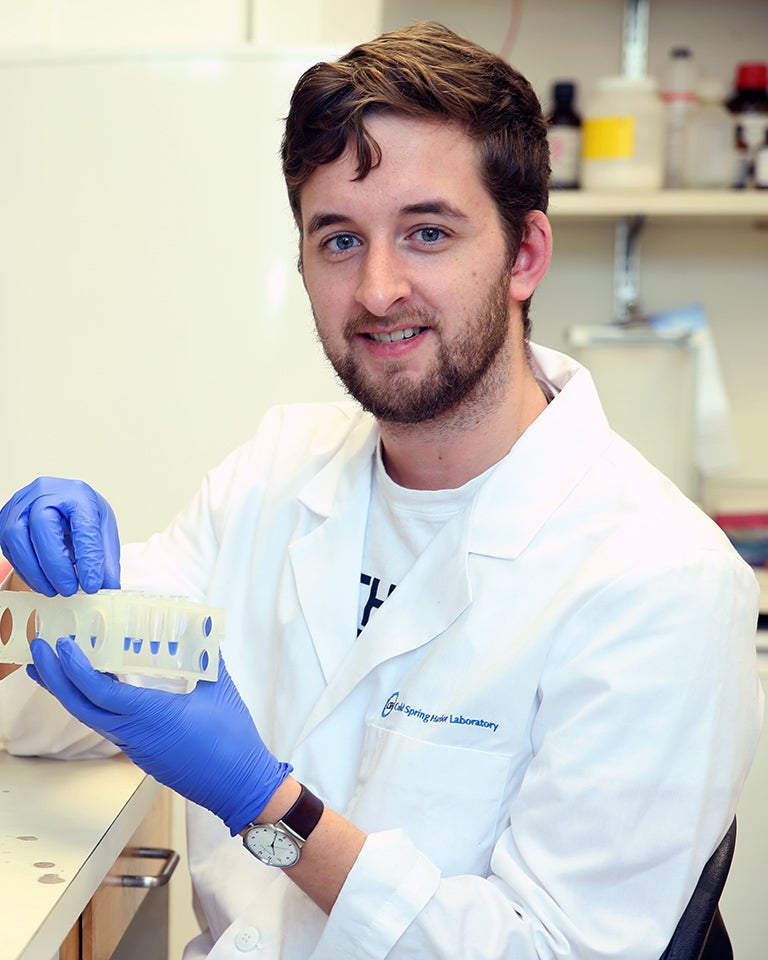
University of Bristol
David H. Koch Fellow
Entering Class of 2015
Thesis: “Endocytic regulation of PTEN”
Coming from the idyllic coastline setting of Cornwall in South West England to the bustling metropolitan hub of New York, I did not expect Cold Spring Harbor Laboratory to immediately feel like home. The unique aesthetic of the lab nestled in the vista of trees lining the shoreline provides those undertaking state-of-the-art research with a picturesque backdrop that can at times feel like you’re at a luxury science camp.
Nowhere else would I have been able to test my interests and sample a broad selection of scientific disciplines during my time as a graduate student. Even after homing in on the focus of my thesis work, my perspectives were constantly expanding and evolving as I mingled with neuroscientists, structural biologists, and computational biologists during the ample social events and meetings held around campus.
I was fortunate to undertake my thesis research in Professor Lloyd Trotman’s laboratory. At first, we pursued diverse avenues of cancer research, from high-tech imaging of prostate cancer mouse models, through to the application of next-generation genetic manipulation techniques, to cells in culture. We tested multiple hypotheses before revealing a novel mechanism of growth suppression frequently deregulated in cancer. Overall, my time in the lab challenged me to develop a formative understanding of the scientific process, honed my collaboration skills, and taught me the value of teamwork—all critical skills I will continue to apply in my future pursuits.
Finally, I would like to extend my sincere appreciation to those who contributed to my scientific and personal growth here at CSHL—my mentors, my colleagues and my classmates. I will be forever thankful to all.
Katarina Meze
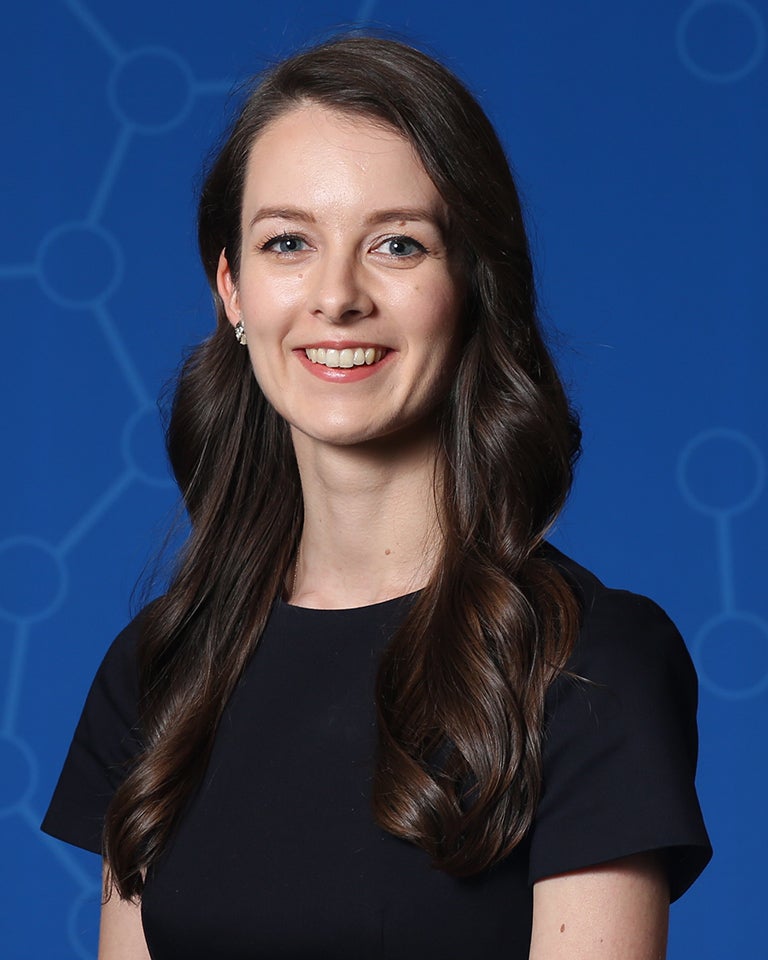
University of York, UK
Leslie C. Quick, Jr. Fellow
Entering Class of 2015
Thesis: “Mechanism of structured RNA degradation by the human exonuclease Dis3L2”
On my first attempt to interview at the School of Biological Sciences, I ended up stranded at an empty Leeds Bradford airport on a cold and dark February morning. Unforeseen visa issues—and an unwavering airport attendant—had stopped me from getting on the plane. I contacted Kim expecting to be told that my chance to join an amazing Ph.D. program was gone. To my surprise and great relief, they helped me reschedule and make it to a new interview date. Now, six years on, I couldn’t be more grateful for that second chance and for all the support the school has provided over the years.
Having completed my undergraduate in Chemistry, I joined CSHL with the hopes of jumping into a completely different field of science. Following the first-year courses, which seemed to condense a few undergraduate degrees worth of material into one semester, I tried out some yeast genetics and worm development in my rotations. However, I couldn’t help but come back to my chemistry roots, to those brilliant tiny protein machines. The past five years in the Joshua-Tor lab have been amazing, and I am incredibly grateful to Leemor for her support and guidance. I learned how to study protein structure and function, elucidating mechanisms through the combination of high-resolution cryo-electron microscopy and kinetic analysis. From failed experiments to new discoveries, the experiences I have gathered have helped me develop as a scientist and grow as a person. And, most importantly, I have been fortunate to have wonderful mentors, friends and family by my side for the journey.
Alexandra C. Nowlan
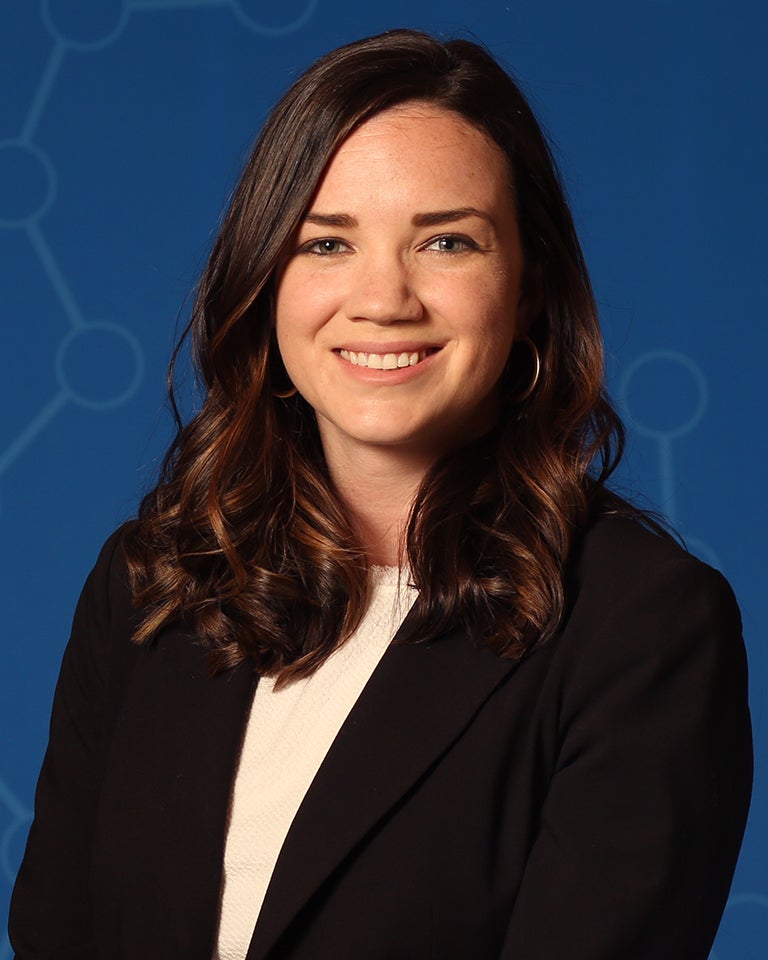
University of Massachusetts
George A. and Marjorie H. Anderson Fellow
Entering Class of 2015
Thesis: “An amygdalocortical circuit for multisensory processing in maternal behavior”
Cold Spring Harbor Laboratory’s appreciation for history and tradition is apparent the moment you set foot on campus. Everywhere you look, you can find a display of homage to the scientists who have passed through this auditorium and the monumental discoveries they shared here. I never expected to participate in the school’s traditions before officially joining the program, but every year one interview weekend coincides with a nor’easter that generally puts a damper on recruitment. Perhaps it was my prior experience with New England winters or the school’s extended courtship of the Boston-bound candidates trapped on campus that allowed me to see the potential underneath all the snow. Either way, on Valentine’s Day 2014, a match was made.
I joined the Shea lab to study the neural circuits that support social behavior. Other lab members had successfully established projects examining the flexibility of circuits involved in smelling or hearing. However, I chose to explore the intersection of these two senses. My riskier choice was rewarded with opportunities to be creative and practice independent thought, and ultimately opened up a flood of questions about how our emotions might influence the sensory perception of social cues.
The freedom that trainees are afforded here to forge their own paths personally and scientifically is what results in these historic discoveries we see commemorated by portraits on the walls. I will remember my time here most for the confidence I developed as an independent researcher, the community that I built with my friends and colleagues, and the impact that can be made when you dare to challenge the status quo.
Sofya A. Polyanskaya
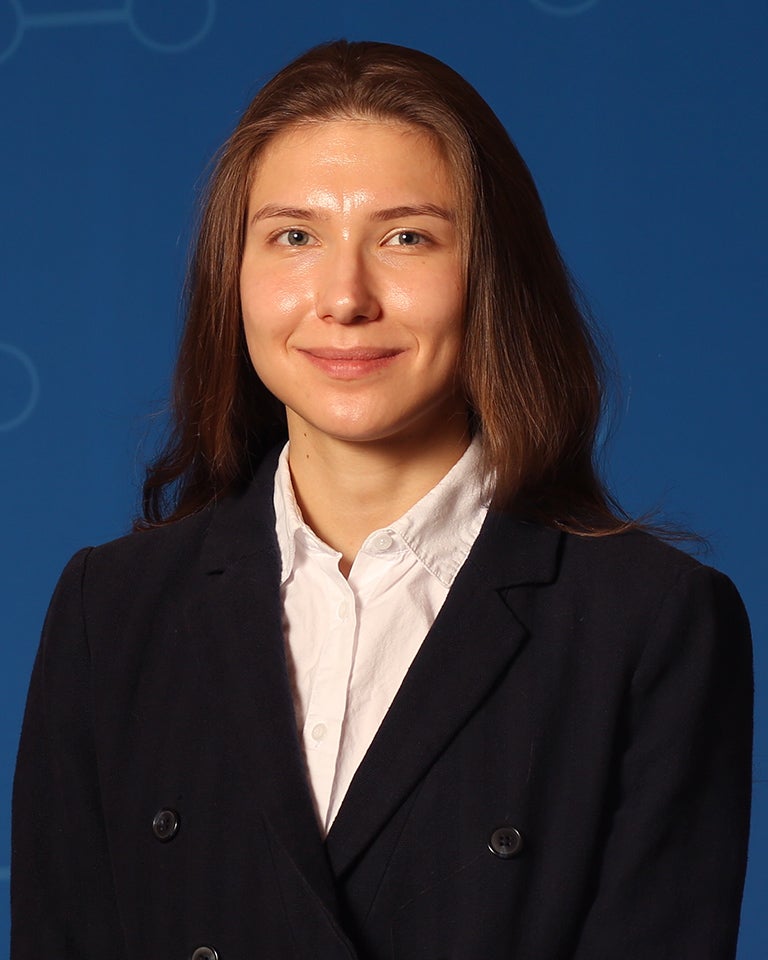
Lomonosov Moscow State University
Starr Centennial Scholar
Entering Class of 2015
Title: “A nuclear phosphatase-kinase signaling complex that supports acute myeloid leukemia”
During my undergraduate years at Moscow State University, I studied biochemical and structural details of protein translation. When I arrived for the interviews in February 2015 and saw The Waltz of the Polypeptides, celebrating in a beautiful art form the process I had been thinking about all too much in the previous years, I immediately felt the sense of belonging. Looking from the Octagon down at the serene views of the frozen harbor powdered with snow, I wished for a chance to come back. Years after accepting the offer, I am still amazed by the rich history and atmosphere of CSHL reflected in the photographs, intricate artwork, and well-maintained gardens around campus. The appreciation for science, art, and nature through the hard work and genuine care for their craft from every employee is what makes CSHL so unique.
Graduate school allowed me to significantly broaden my horizons by exposing me to the latest research on the diverse scientific questions explored by the many laboratories on campus—led by some of the most prominent scientists in these fields. I am grateful for the intensive courses and the opportunity to attend the world’s best scientific meetings in-house. This training helps me not to feel overly lost even when listening to the talks in different areas to the one I specialized in. For my graduate thesis, I was fortunate to work under the mentorship of Dr. Christopher Vakoc and discover a novel role for a previously unstudied protein in acute myeloid leukemia. To my mentor, my colleagues, and my friends at CSHL, who were instrumental in these formative years for me as a scholar, I am forever grateful.
Ngoc Buu Tran
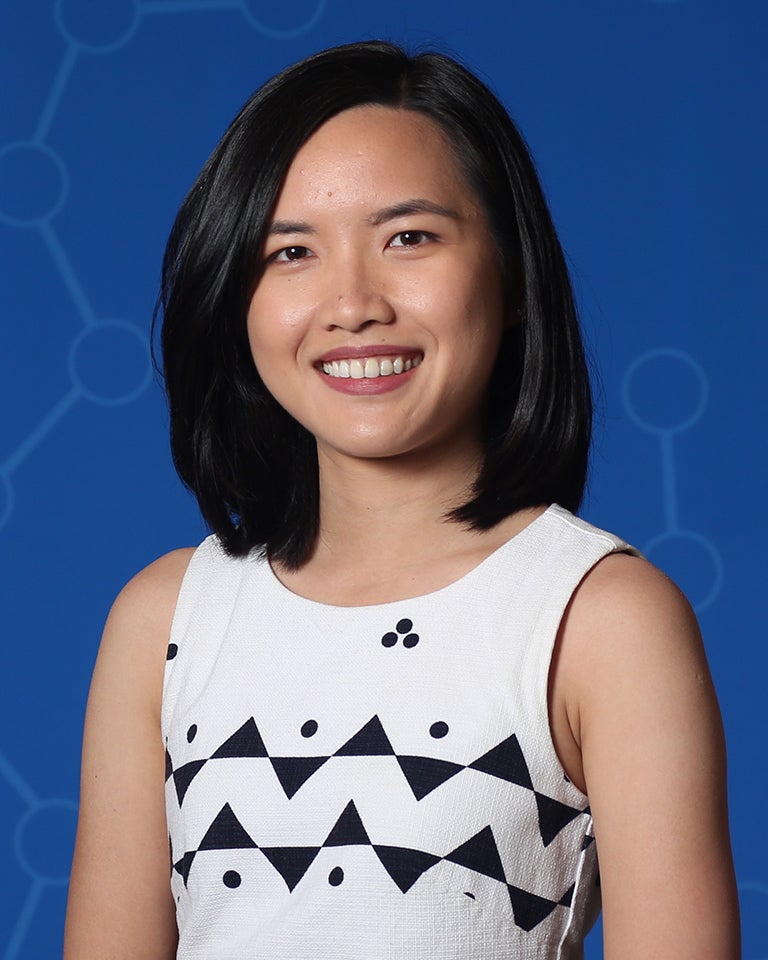
San José State University
Samuel Freeman Fellow
Entering Class of 2015
Thesis: “DeepNose: Using artificial neural networks to represent the space of odorants”
Before the Ph.D. program, I arrived at Cold Spring Harbor Laboratory as a meeting attendee. Being an undergraduate student attending my first scientific conference, I felt quite nervous and was afraid I would not fit in. As it turned out, fitting in was not a problem since there was only one cafeteria for the whole conference, which catalyzed interactions between attendees. In fact, it was so easy to “fit in” that one day I even unknowingly crashed an organizers’ meeting while trying to tell a PI about my work. The tight-knit atmosphere at such a world-class institute drew me to apply and matriculate at the School of Biological Sciences.
Through the first-year curriculum, the in-house seminars and the wine-and-cheese gatherings, the Lab made it very clear that everyone is first and foremost a scientist and not confined to a particular discipline. Having trained as a chemist, I switched gears towards computational research in graduate school. During my time in the laboratory of Dr. Alexei Koulakov, I built machine learning models to link molecular structures to olfactory perception. As I put together computer parts for our lab’s server or went over with ease an equation that I could not comprehend a year ago, I felt so fortunate to be given the time, resources and mentorship to explore a scientific question. For this, I am grateful to my advisor and the school.
